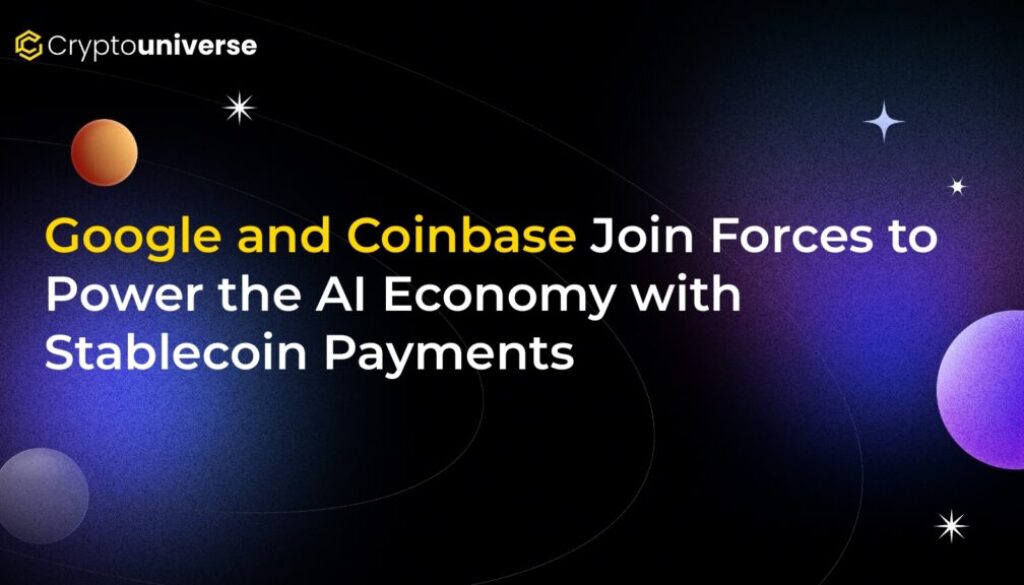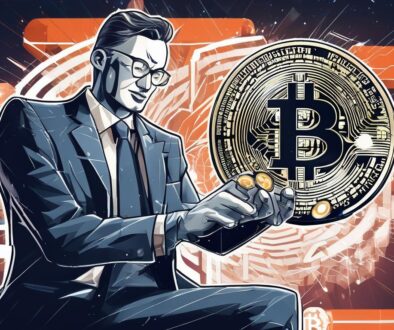Google and Coinbase Join Forces to Power the AI Economy with Stablecoin Payments

Join Forces to Power the AI Economy with Stablecoin Payments
Imagine a world where your next business partner isn’t a person, but an autonomous AI agent that can negotiate deals, manage supply chains, and execute payments on its own. What was once the realm of science fiction is now becoming a tangible reality, thanks to a groundbreaking collaboration between two industry titans. Google and Coinbase are teaming up to build the financial infrastructure for a future powered by artificial intelligence, and it all starts with enabling AI to use money.
At the core of this initiative is a new payment protocol designed for machines: x402. By merging Google’s unparalleled expertise in AI with Coinbase’s leadership in blockchain technology, this partnership aims to create a world where autonomous AI agents can transact seamlessly using stablecoins. This isn’t just an upgrade to payment systems; it’s the laying of a foundational stone for a new, AI-driven economy. In this article, we’ll break down what this means, how it works, and why it could change everything.
What is the AI Agent Economy?
The “AI agent economy” is a concept where autonomous AI systems, or “agents,” operate independently to perform tasks, pay for services, and interact with other agents without direct human oversight. Think of them as digital employees working 24/7, capable of executing complex tasks at a speed and scale far beyond human ability.
For this economy to function, these agents need a native way to transact. Traditional payment methods like credit cards and bank transfers are too slow, expensive, and clunky for the millions of tiny, high-frequency transactions machines would need to make. This is the problem that Google and Coinbase are setting out to solve.
The Engine Room: Coinbase’s x402 Payment Protocol
The cornerstone of this new digital economy is the x402 payment protocol, developed by Coinbase. Built on blockchain technology, x402 is specifically designed to handle the unique demands of AI-to-AI commerce.
Here’s what makes it special:
- Microtransactions: It enables fast, incredibly low-cost payments, making it feasible for an AI to pay fractions of a cent for a piece of data or an API call.
- Stablecoin-Powered: By using stablecoins (cryptocurrencies pegged to a stable asset like the US dollar), it avoids the price volatility of other cryptocurrencies, ensuring predictable and reliable transactions.
- Blockchain Security: Every transaction is recorded on a secure and transparent blockchain, providing a trustworthy ledger for all machine-to-machine interactions.
Essentially, x402 gives AI agents their own digital wallet and a payment rail built for their high-speed world, removing the friction of the legacy financial system.
Building the Playground: Agentic Marketplaces and Google’s AP2
For AI agents to work together, they need a place to meet, negotiate, and exchange services. This is where the concept of agentic marketplaces comes in. Platforms like Google’s A2A (Agent-to-Agent) protocol and the conceptual x402 Bazaar are being developed as virtual ecosystems where AIs can autonomously discover and interact with each other.
For example, an AI agent tasked with planning a vacation could autonomously:
- Find an airline’s AI agent to negotiate and book the best flight.
- Interact with a hotel’s AI agent to reserve a room.
- Pay for both services instantly using the x402 protocol.
Google’s AP2 framework is the developmental sandbox where these interactions are first being tested. While not yet available to the public, it is being opened up to developers and partners to experiment and build the first generation of AI-powered applications, paving the way for wider adoption.
Potential Applications: Reshaping Industries
The potential for an AI-driven economy is vast and spans nearly every industry. Here are just a few exciting possibilities:
- Automated Supply Chains: An AI agent could monitor inventory levels, automatically order new stock from a supplier’s AI, and process payments upon delivery, all without human intervention.
- Decentralized Cloud Computing: AI agents could purchase computing power from a global network of providers on a per-second basis, optimizing costs and efficiency.
- AI-Powered Content and Data Markets: An AI could create a piece of art or a market report and then license it to other AIs, collecting micropayments for each use.
- Smart IoT Networks: Your self-driving car could autonomously pay for charging, tolls, or parking by transacting directly with the service provider’s systems.
The Road Ahead: Challenges and Opportunities
While the vision is revolutionary, building a fully-fledged AI agent economy comes with significant challenges that need to be addressed:
- Scalability and Speed: Can blockchain networks handle the sheer volume of transactions that a global AI economy would generate?
- Security and Trust: How do we prevent malicious AI agents from exploiting the system or committing fraud?
- Regulation and Governance: Who is liable when an autonomous AI makes a mistake that costs money? Clear regulatory frameworks will be essential.
- Risk of Monopolization: Will this new economy be open and accessible, or will it be controlled by a few tech giants?
These hurdles also represent immense opportunities for innovation. The companies and developers who can solve these problems will be at the forefront of the next technological revolution.
Conclusion: The Dawn of a New Economic Era
The partnership between Google and Coinbase is more than just a corporate announcement; it’s a signal that the foundational pieces of an autonomous machine economy are being put into place. By providing AI with a native financial language through the x402 protocol, they are unlocking a future of unprecedented automation, efficiency, and innovation.
We are still in the early innings, with frameworks like AP2 just beginning to open up to developers. However, the path is being paved for a future where intelligent systems collaborate and transact, reshaping industries and redefining what it means to do business. The age of the AI agent is dawning, and it will be built on blockchain.


